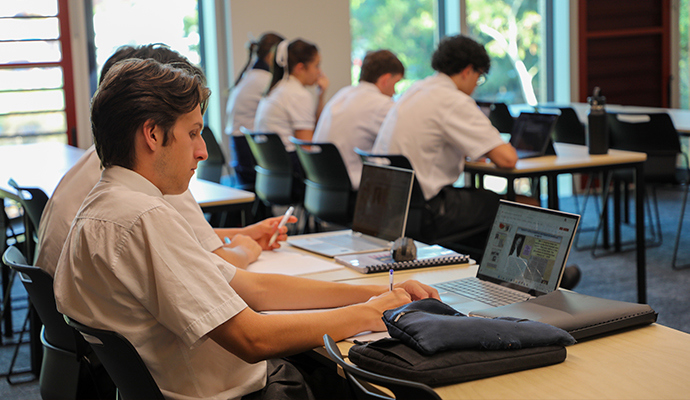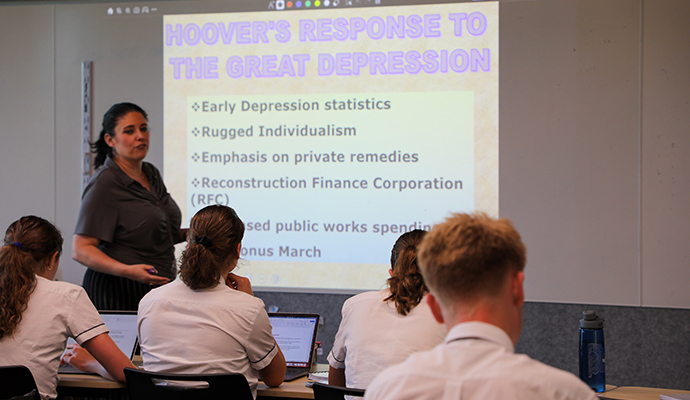In Modern History, students investigate the causes and consequences of significant events in the past. They consider questions such as how economic turmoil helped fuel the rise of dictators like the Nazis in the period between the World Wars or why countries like Britain, despite being one of the most democratic in the world at the time, nonetheless denied women the vote. The course encourages students to consider different points of view and challenges them to make their own judgements when evaluating questions. These challenges help them to develop research and writing skills along with the ability to critically evaluate information.
In Year 11, we study events in women’s history, such as the Suffragette movement and how this history has been constructed over time. We look at the origins of the Arab-Israeli conflict to give students some understanding of the world around them. We also look at political events in history, such as the decline of the Romanovs and the American Civil War. We finish the year with our conflict study of the First World War. These units are designed to equip students with the skills needed to move confidently into their HSC year.
Contact
Head of History: Julia Kerr
Email: jkerr@barker.nsw.edu.au


Year 11
Preliminary Course
The Preliminary Course investigates a series of case studies that introduce students to interesting aspects of the past that have a lasting relevance to the world today such as the Russian Revolution, Arab Israeli conflict, and the campaign for women’s rights in Britain at the turn of the twentieth century. Students also learn about the modern world through a study of World War I and conduct their own research on an area of history of interest to them.
HSC Course
For the HSC course, students start with a study of Power and Authority in the Modern World, a topic which looks at the rise of dictatorships in Europe after World War I with particular focus on Nazi Germany. They consider what factors led to the rise of dictators, and how, once in power, dictators maintained their position and sought to transform the societies they controlled.
Students then will study some of the following options:
- Russia and the Soviet Union 1917-1941
- USA 1919-1941
- Iran 1945 - 1989
- Conflict in Indochina
- World War II in Europe
- Civil Rights in the United States between 1945 and 1968
- the end of Apartheid in South Africa
- Changing World Order 1945 - 2011
Assessment
- Written tasks
- Research task
- Trial Examination

